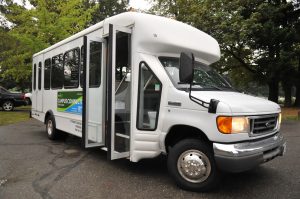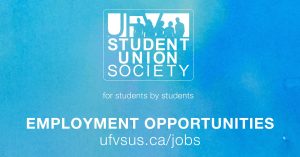This isn’t a comprehensive guide or how-to on paying for and affording school, but hopefully it’s a start. It hasn’t covered everything for a reason — this is university, time to take the thumb out of your mouth and tie your own shoes. You’re responsible for your decisions, that’s the blessing of having complete authority to reach your goals or fail yourself.
University tends to be expensive. What’s also expensive is: food, textbooks, gas, clothes, school supplies, and having a life outside of studying. The unfortunate truth is that wages don’t reflect the costs of inflation, making it more and more challenging to pay for these costly prices, fees, and taxes.
Since 1990–91, average tuition and other compulsory fees in Canada have increased from $1,464 to $6,191 in 2015-16 with predictions as high as $7,437 for this academic year.
These numbers would be just numbers if it were not for the fact that the national unemployment rate for 18-25 year olds is double the overall average, which sits at about seven per cent. And this stat doesn’t reflect the amount of graduates working multiple jobs, struggling to balance loan payments with living. In today’s market, many students have to work at least six times the amount of hours at minimum wage than their parents would have had to in 1972 to afford their way through post-secondary.
Despite students’ burden, university can be paid for and it doesn’t have to leave you enslaved to years of debt. What follows are a few ways that’ll help alleviate the weight of student expenses.
WAYS TO SAVE
Utilize Student Union Society (SUS) services paid for by your fees
As a student union member in good standing, you’re offered such services as the campus connector, FixIT, the health and dental program, and U-Pass.
There’s a challenge and a cost for commuting between UFV campuses. The campus connector regularly runs between Abbotsford campus, Chilliwack campus, and Langley at Carvolth Exchange. The shuttle is free with a student card and is an excellent way to save on gas or commute to other classes.
FixIT is a free service offering technical assistance on a variety of tech-related issues. They’ll also offer device repairs at cost; this means you can get your iPhone screen fixed for under $100.
The health and dental program is an extended health and dental coverage for students. Incredibly, it covers such items as 80 per cent of prescription drugs, over $3,000 for health practitioners, up to $300 in vision care, up to $600 in dental care, and travel health coverage (*taken from SUS website). This one’s savings are pretty obvious.
All U-Pass holders have access to numerous benefits and discounts to businesses throughout Abbotsford, Mission, and Chilliwack — a list of participating businesses is available on the SUS website. The U-Pass also includes free public transit and some recreation centres.
Sign up for a rewards credit card
While handing a credit card as a pre-prefrontal cortex’ed individual could bear the recipe for disaster, there are benefits to using one.
- Most credit card providers offer rewards or benefits for using their card. These benefits range from cash-back, to travel points, to various retail rewards.
- Many cards include an annual fee, which for students is probably undesirable. However, cards like the Scotiabank Scene Visa and Tangerine’s Money Back MasterCard both offer points with no annual fee. The Scotiabank Visa earns you Scene points which translates into movies at Cineplex for the movie lovers and the Tangerine MasterCard offers a percentage back on two purchasing categories — three if you have $1000 in the bank. It’s also worth paying attention to interest rates, but hopefully you won’t need to make payments.
Perhaps you don’t mind a small annual fee and you have lofty plans of travel. In that case any of the banks travel rewards cards will offer points; however, the WestJet RBC World Elite MasterCard has some unique benefits.
Make a budget
Making a budget is actually simple. With the aid of online budget calculators and spending tracker apps, it should be easier now more than ever. The difficulty for most is actually sticking to the budget. Budgeting has the potential to be the most effective way to be safe — the idea is that you’re going to consciously allocate funds into certain categories. If you’re aware that you only have $100 fun money for the year, you’re just as able to make it last as someone with $1000 fun money. Having the budget will help you see how much money you have, or more likely how much you don’t.
[aesop_video align=”center” src=”self” id=”EFANpLYe1ik” hosted=”https://www.youtube.com/watch?v=EFANpLYe1ik” disable_for_mobile=”off” loop=”on” autoplay=”off” controls=”on” viewstart=”off” viewend=”off”]Buy used textbooks
There are many resources for buying used textbooks; online is the most obvious place to look. Several websites are dedicated to connecting buyers to sellers of used textbooks, and sites like Amazon and eBay often have well-priced books. Local classifieds like craigslist are also a smart place to check.
WAYS TO PAY
Part-time job
Working for an education is considered to be a rewarding and necessary experience by many, as it actually leads to a greater sense of investment in school. While some scholars and intellects never worked a day in their life, they also came up with such ideas as communism and indulgences.
- Part-time jobs off campus should be fairly straight forward: find something that’s flexible, not too intellectually draining, and know that there’s always another job if you’re feeling the black hole of part-time work disparity.
- Jobs on campus, on the other hand, offer the convenience of being close to classes and always try to accommodate student schedules, and you’ll also be contributing to your community.
- SUS has several employment opportunities, including information desk attendant, facilities coordinator, IT support at FixIT, Fair Grounds coffee café, and the Canoe restaurant.
- Working with UFV in a co-op or work study program may also be an option — there are however specific requirements for both. The career centre can provide more information on those and additional information on finding a part-time job.
Scholarship, bursary, or grant
Both the government and private entities will offer scholarships, bursaries, and grants. Every year the government hands out millions in financial assistance, and thousands go uncollected. What most students don’t realize is these are not exclusively for high-achieving students, but they do require a bit of leg work.
Typically, grants will be given to students in need, whereas scholarships will be awarded based on some kind of (large or small) achievement.
- Grants are sums of money given to a student for educational purposes, typically from the government. They, like scholarships, do not need to be repaid; unlike scholarships they are awarded for financial need, sometimes requiring some level of achievement.
- Scholarships are gifts or awards to students who meet the requirements of the particular scholarship. They are focused towards various types and groups: some to women, some to athletes, some to anyone who bothers to apply.
Scholarships are offered at various places, notably provincial and federal agencies, foundations (religious, civil, NGO, etc) and often local business too.
Although each scholarship has different requirements, some might require the writing of an essay, others that you only apply. They are also offered to students of all levels whether new to post-secondary or nearly finished.
- Bursaries are similar in that they are financial awards, but are given based on a certain level of financial need.
Government loan / line of credit from financial institute
Government loans are offered to both full-time and part-time students; they’re practically offered to everyone. The downside is that you’ve got to pay them back — this means debt.
Just about all financial institutions will offer lines of credit to students. They generally won’t include setup costs or annual fees, and have low interest rates. You’ll get the money now, but you’ll have to pay more in the long run. Probably not the best first option.
ADDITIONAL RESOURCES
There are UFV financial aid and awards offices on both the Abbotsford and Chilliwack campuses that are open year-round. Check UFV’s financial aid and awards page.
- UFV Career Centre
- Abbotsford building B, Room 214 (the Student Services office, around the corner from OReg)
- Chilliwack building A, Room 1318 (right next to OReg, across from the library main entrance)
- Email: Financial.Aid@ufv.ca




